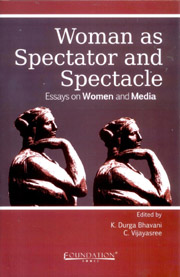Introduction
Published online by Cambridge University Press: 05 November 2011
Summary
If there is one single revolution which has decisively impacted the lives of the largest number of people in the twentieth century, it is the explosion in the field of media, and its reach. There is not a single social group which is outside the influence of media; not a single issue that is not mediated by media. In fact media has erased several borders and facilitated trafficking of images across barriers. Media constructs and deconstructs identities, prescribes and proscribes values, makes and unmakes lifestyles, creates and destroys icons, and simply mediates every aspect of our life. Even remote geographic areas are influenced by advertising, newspapers, magazines, radio, television, music, films and other print and electronic media. The mediated images and messages construct the very fabric of everyday life, knowledge and frameworks of reality. Given this omnipotence and omnipresence of media, it is imperative that we examine the ramifications of this huge apparatus for all sections of people.
In the last two decades Media Studies has quite rightly and understandably become a popular discipline operating under the broad rubric of Cultural Studies and has provided the necessary critical analyses of the developments in media from a variety of perspectives. One of the major concerns of media critics has been “the gendered structures and relationships between human beings on the inside of media industries who control the resources, determine the images, words, and sounds that we consume” (Ross and Byerly: 1).
- Type
- Chapter
- Information
- Woman as Spectator and SpectacleEssays on Women and Media, pp. x - xivPublisher: Foundation BooksPrint publication year: 2010

